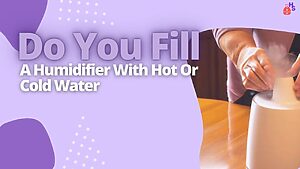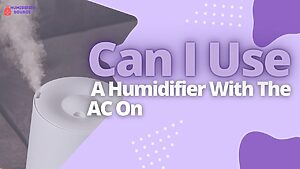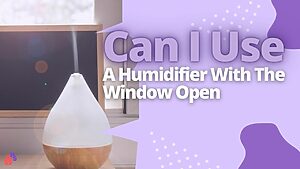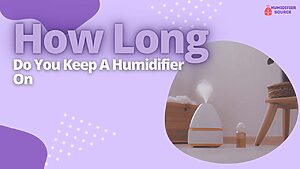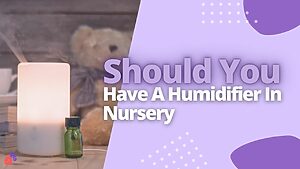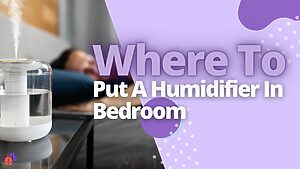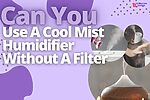You’ve probably heard of sleep apnea, but do you know how a humidifier can help? Or why cold air is bad for your health.
Have you ever woken up in the night and had trouble breathing? If this is the case, you may have sleep apnea. But fear not – there is yet hope!
This article will cover what sleep apnea is and how a humidifier can help with it. Additionally, we’ll discuss why a humidifier is an excellent choice for those suffering from this ailment.
Key Takeaway’s
- A humidifier can help with sleep apnea by keeping the airways moist and preventing them from drying out.
- This can reduce snoring and make it easier to breathe during the night.
- Humidifiers can also help to relieve congestion and coughing.
- If you have sleep apnea, it is important to talk to your doctor about whether a humidifier is right for you.
- There are different types of humidifiers available, so be sure to choose one that is right for your needs.

Here’s the Answer to Can a Humidifier Cure Sleep Apnea
A lot of people think that a humidifier can cure sleep apnea. However, this is not always the case. If you don’t have access to a CPAP machine and your symptoms are mild, a humidifier may help improve your breathing during sleep.
However, before making any alterations to your standard sleeping patterns, have an appointment with your doctor. A CPAP machine (Continuous Positive Air Pressure device) is often the best option for treating sleep apnea, and it is the most effective treatment in the long term.
The increased moisture in the air from a humidifier can help loosen the thick mucus that collects in your throat when you sleep and causes obstructions of your airways, triggering your body to wake up temporarily in response.
Is Sleep Apnea Reversible?
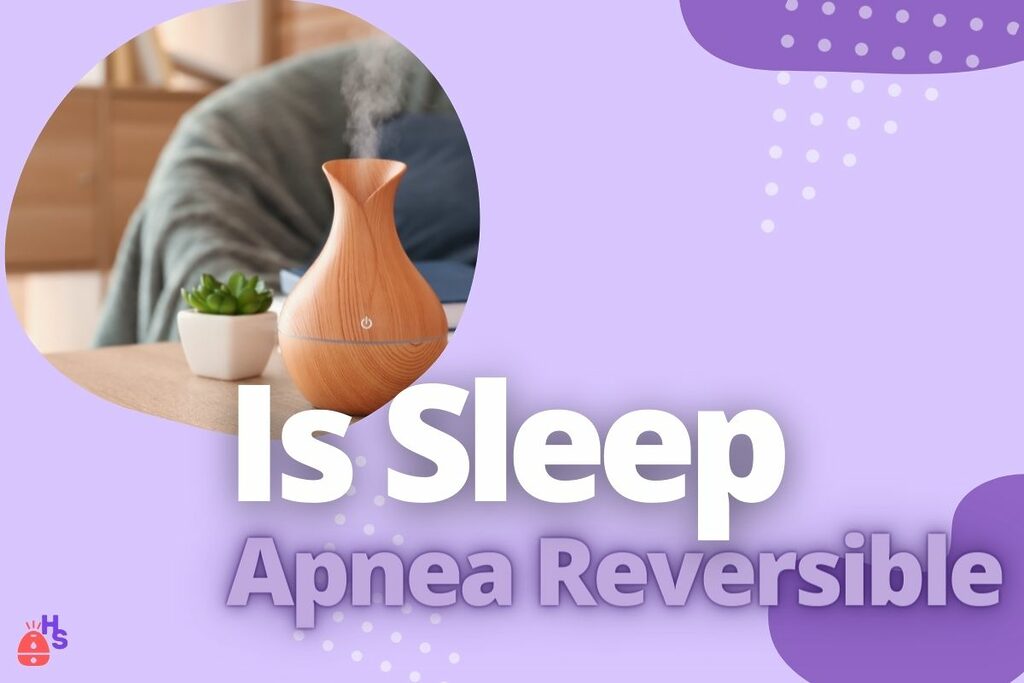
Snoring, snorting, or choking can wake you up in the middle of the night if you’re anything like most people.
This is the sleep apnea syndrome or sleep apnea, which can be really disruptive and even dangerous. In the long run, sleep apnea can lead to significant health issues such as heart disease, hypertension, and diabetes if it is not treated.
Fortunately, sleep apnea can be diagnosed and treated independently with the right equipment and a regular sleep schedule. However, if you’re not yet experiencing sleep apnea, your CPAP machine may not be fitting you properly.
The use of positive airway pressure equipment and the adjustment of the humidity level in the bedroom may help alleviate sleep apnea symptoms.
In this case, consult with your Sleep Doctor to find the right CPAP machine. Many people experience significant improvements in their quality of life after treating sleep apnea. So don’t wait – get started today and enjoy a better night’s sleep!
How To Help Sleep Apnea Naturally
Those with sleep apnea stop breathing while they are asleep. It’s a common problem and one that can be difficult to treat.
A few simple lifestyle changes can significantly impact the quality of your sleep. For example, you can drink lavender tea before bed and use essential oils on the chest during the day.
Some standard methods include wearing a CPAP mask and adjusting your sleeping environment. These solutions require some effort on your part, but they’re worth it for a better night’s sleep!
CPAP therapy is a treatment option for people with sleep apnea.
How To Use Heated Humidity For Sleep Apnea Treatment
If you suffer from dry air during the night, adding heat to the room may help improve your sleep quality. Humidity is an integral part of sleep apnea treatment, and heated humidity is a great way to increase it.
If you have obstructive sleep apnea, heated humidity can help by thinning the mucus in your airway and sinuses, reducing inflammation, and improving airflow.
Heated humidity can be set up in your bedroom or office, providing the ideal environment for sleeping comfort. Alternatively, if you’re unable to use a humidifier at home, heated humidity may be a good solution.
Heated humidity can help to improve sleep apnea by reducing the drying of throat muscles and making the upper airway less likely to collapse.
So if you’re ever feeling restless and can’t sleep, give heated humidity a try!
Potential Side Effects Of Using A Humidifier To Treat Sleep Apnea
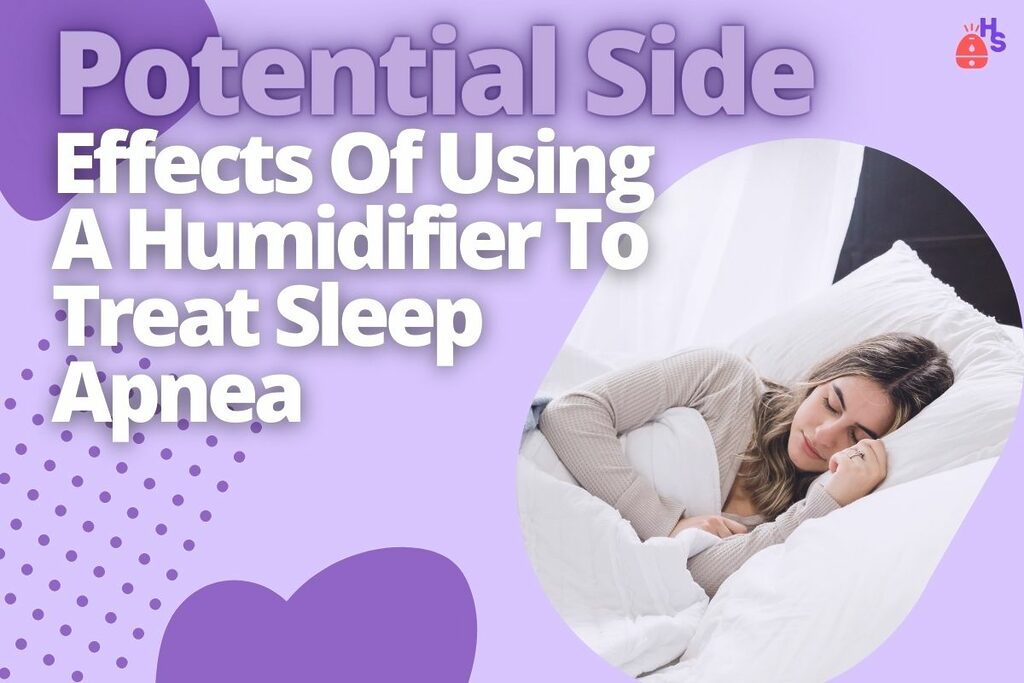
If you’re looking for a way to help treat sleep apnea, using a humidifier may be a good option—however, it’s essential to be aware of the potential side effects of using one.
These can include dryness and irritation of the nasal passages and throat, leading to further complications. Therefore, before using a humidifier, it’s always important to speak to your doctor to discuss your options.
Be sure to ask if you’re unsure if one is right for you. And, always use caution when using any medical device – be sure to adjust usage as needed based on individual symptoms.
Here are more potential side effects of using a humidifier, such as a dry nose, nosebleeds, and light sleepers. Ensure that you follow the manufacturer’s recommendations to avoid any potential complications.
The Benefits of Using a Humidifier to Treat Sleep Apnea
As someone who suffers from sleep apnea, you are well aware of the negative impact it can have on your health. However, humidifiers are an affordable treatment option that should not be overlooked.
There are many different types of humidifiers to choose from, so find the comfortable one for you to use. You can use a humidifier in various rooms of your house, making it easy to get it where you need it most.
A humidifier can help by keeping your throat moist and preventing dryness that can lead to daytime sleepiness and respiration problems. Regular exercise and a healthy diet are also crucial for treating sleep apnea.
Humidifiers can also help improve your quality of sleep and reduce your symptoms. Because humidifiers are an inexpensive and straightforward therapy option for sleep apnea, they’re worth looking at!
How Effective Is Using a Humidifier to Treat Sleep Apnea?
Humidifiers are often used as a treatment, and they can be very effective in helping patients breathe easier. In addition, daily use of a humidifier can help improve sleep quality for people with sleep apnea.
The CPAP device is the most effective medical equipment to treat sleep apnea. However, it is not adequate for people who smoke or have large rooms.
A humidifier may help reduce the risk of airway obstruction and central sleep apnea. Follow the manufacturer’s instructions to operate and use your humidifier properly.
Humidification to treat sleep apnea is a viable option for those who cannot use continuous positive airway pressure.
In addition to helping you breathe easier during sleep, humidifiers can also help you fight allergies, colds, and other respiratory problems. As a result, if you’re having trouble sleeping or have respiratory issues, a humidifier could be the answer.
Is It Worth Using A Humidifier For Sleep Apnea?

If you suffer from sleep apnea, you may be wondering if it’s worth using a humidifier to help improve your sleep quality. The truth is that there is evidence that using a humidifier can enhance the quality of sleep.
Overall, CPAP humidifiers can help make CPAP therapy more tolerable and improve sleep quality for people with sleep apnea. In addition, a humidifier can improve your quality of sleep and lower your risk of heart disease.
In addition, spending just a few minutes each night adding moisture to the air can help reduce morning fog and congestion. Consult your physician beforehand to ensure that using a humidifier is helpful for you in the long term.
How to use a humidifier for sleep apnea?
A humidifier can help ease the symptoms of sleep apnea by keeping the air in your bedroom moist.
- To avoid polluting the air, you should use distilled water to fill your humidifier.
- Run the humidifier for at least 30 minutes before bed to give the room time to reach the desired humidity level.
- Place the humidifier on a stable surface near your bed so that you can easily get it during the night if needed.
- Adjust the humidifier settings as required to maintain the desired level of humidity.
- Keep the door to your bedroom closed to help maintain the desired humidity level.
- Drink plenty of fluids during the day to help keep your airways moist.
- Avoid using fans or other devices that can dry out the air.
- Check the humidifier regularly to ensure that it is clean and free of mold or mildew.
What Type of Humidifier Is Best for Sleep Apnea?
The American Academy of Sleep Medicine recommends humidifiers. However, like with any appliance, it is essential to follow the manufacturer’s instructions and keep the humidifier clean to ensure optimal performance.
There are many different humidifiers available on the market, but not all of them are equally effective at treating sleep apnea. Sensor mist humidifiers, ultrasonic humidifiers, and cool mist humidifiers are among the most popular types of humidifiers.
Sensor mist humidifiers are one of the most popular humidifiers for treating sleep apnea. These humidifiers work by using sensors to detect when the air in your room is dry and then release a mist of water into the air. This mist helps to keep the air in your room moist and prevents your throat from drying out.
Ultrasonic humidifiers are another popular type of humidifier for treating sleep apnea. These humidifiers work by using ultrasonic waves to create a fine water mist. This mist helps to keep the air in your room moist and prevents your throat from drying out.
Cool mist humidifiers are one of the most popular humidifiers for treating sleep apnea. These humidifiers work by releasing a cool mist of water into the air. This mist helps to keep the air in your room moist and prevents your throat from drying out.
Is a Humidifier Better than An Air Purifier for Sleep Apnea?
There’s no one-size-fits-all answer to this question, as the best humidifier for sleep apnea will vary depending on your needs and preferences.
However, one thing is for sure – air purifiers remove potentially harmful particles from the air, but they can also be noisy and harsh to breathe in. On the other hand, humidifiers humidify the air and are less likely to cause irritation or fatigue for people with sleep apnea.
So, if you’re bothered by any of the following symptoms, a humidifier may be a better option for you: dry mouth, nasal congestion, snoring, sleep apnea, and restless sleep.
Both devices work well to improve sleep quality for people with sleep apnea, so it’s up to you which one works best!
Are There Any Alternatives To Using A Humidifier For Treating Sleep Apnea?
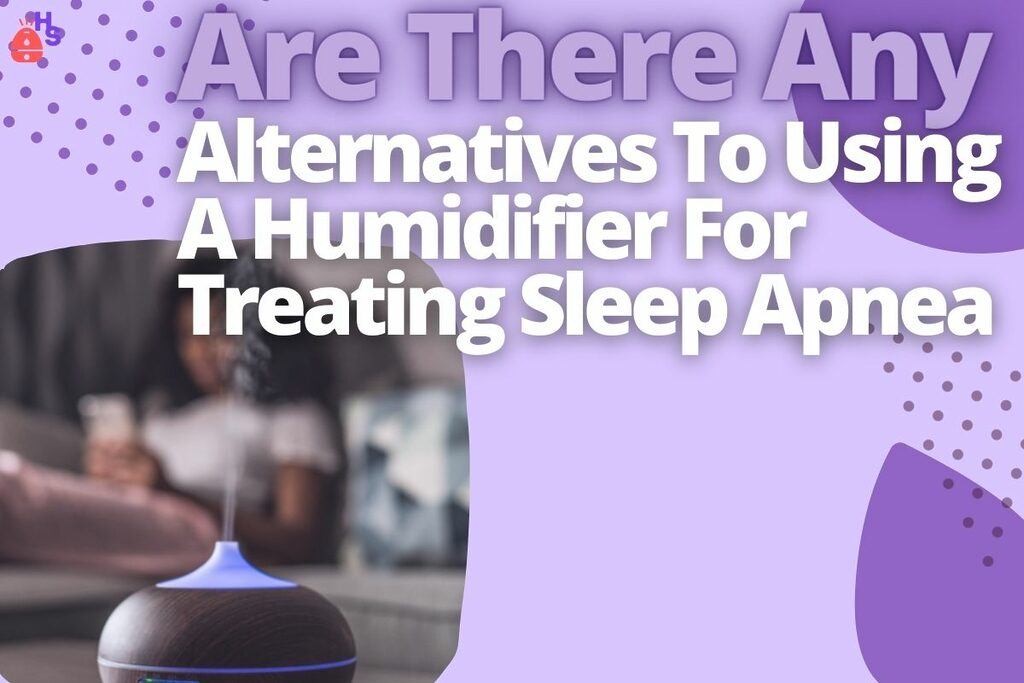
A humidifier is not the only treatment option for sleep apnea. One option is to use a CPAP machine. CPAP machines are designed to help keep your airway open while you sleep. They provide a gentle stream of air that keeps your airway from collapsing.
Another option is to use an oral appliance. During the night, you wear a gadget in your mouth called an oral appliance. They can either hold your tongue in place or move your lower jaw forward to get the job done. This can help to keep your airway open while you sleep.
You may also be able to treat sleep apnea with weight loss. Obesity can exacerbate sleep apnea symptoms, so even a modest weight loss can assist.
If you suffer from sleep apnea, you should consult with your doctor about treatment options.
Final Thoughts
This blog has addressed some of the most frequently asked questions about sleep apnea and how humidifiers can help treat it. If you suffer from sleep apnea, a humidifier is a must.
A humidifier can be an effective treatment for sleep apnea, but it’s best used in tandem with a CPAP machine. If you’re considering using a humidifier to treat sleep apnea, be sure to speak to your doctor first to make sure it’s the right solution for you.
However, consult with your doctor before starting treatment, as there are potential side effects and alternatives to humidifier use that you should be aware of. We hope you find this blog helpful!
Frequently Asked Questions
What can be done to treat sleep apnea?
There are many treatments for sleep apnea, including surgery, therapy, and medication. The most common treatment is therapy, which usually involves wearing a device to help stop the apnea.
What are the key things to know about sleep apnea?
Sources for Sleep Apnea Facts and Figures: The National Sleep Foundations “2011 Sleep in America Poll” reports that 47% of adults aged 18 or older report sleeping less than eight hours per night on average, and over one third of adults report sleeping less than six hours per night.
Individuals with sleep apnea are two and a half times more likely to die from cardiovascular disease than those without the condition, according to research published in the Archives of Internal Medicine in 2009.
According to the “National Sleep Foundation” sleep apnea is associated with an increased risk for hypertension, heart attack, stroke, diabetes, obesity, and memory problems.
CPAP or humidifier: Which is better for me?
Yes, you can use a humidifier instead of a CPAP machine, but it is not as effective as a CPAP machine. A humidifier will add moisture to the air, which can help to ease congestion and dryness. However, a CPAP machine provides a constant stream of air that can help to keep your airway open and prevent snoring. A CPAP machine is the best way to treat sleep apnea, according to experts.
How do I know if my humidifier is helping me with sleep apnea?
There is not a lot of research on humidifier use for sleep apnea, but anecdotally it seems to be helpful. A humidifier may help alleviate your sleep apnea symptoms if you use it at night. If your sleep apnea is getting better with humidifier use, then continue using the humidifier. However, if you do not experience improvement, it may be best to discontinue using it.
Author
- The Right Way To Fill A Humidifier: Hot Or Cold Water?
- Humidifier And AC: Is It A Match Made In Heaven?
- Can I Use A Humidifier With The Window Open (Solve Your Dilemma)
- Perfect Air Quality: How Long To Run Your Humidifier
- Should You Have A Humidifier In Nursery (The Surprising Benefits)
- Humidifiers In Bedrooms: A Guide To Good Placement


